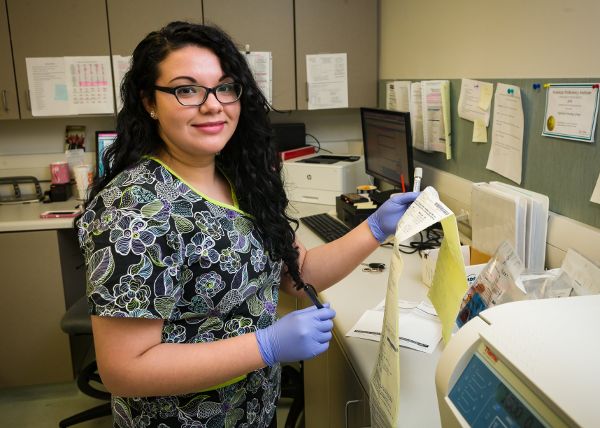EVERY PATIENT HAS THE RIGHT TO BE TREATED AS AN INDIVIDUAL AND TO ACTIVELY PARTICIPATE IN AND MAKE INFORMED DECISIONS REGARDING THEIR CARE. THE CLINIC AND MEDICAL STAFF HAVE ADOPTED THE FOLLOWING PATIENT RIGHTS AND RESPONSIBILITIES, WHICH ARE COMMUNICATED TO EACH PATIENT OR PATIENT’S REPRESENTATIVE/SURROGATE PRIOR TO TREATMENT.
- To receive treatment without discrimination as to age, race, ethnicity, religion, national origin, disability, socioeconomic status, sex, sexual orientation, gender identity or source of payment.
- To be provided privacy and security during the delivery of any service.
- To be given full consideration of privacy concerning medical care. Case discussion, consultation, examination and treatment are confidential and shall be conducted discreetly.
- For patient medical records and communication to be treated with the utmost confidentiality. Written permission shall be obtained before medical records can be made available to anyone not directly concerned with your care. The practice has established policies and procedures to govern access and duplication of patient records.
- To be free from mental and physical abuse, or exploitation during the course of patient care.
- To have the right to be told the truth about an illness, course of treatment and prospects for recovery in terms that you understand.
- To receive as much information about any proposed treatment or procedure, as needed order to give informed consent prior to the start of any procedure or treatment.
- To make decisions regarding the healthcare that is recommended by the physician. Accordingly, may accept or refuse any recommended medical treatment. If treatment is refused, have a right to be told what effect this may have on your health, and the reason shall be reported to the physician and documented in the medical record.
- To have the right to talk to your doctor, family, and friends about illness.
- To have the right to privacy in refusing to talk with others about it if that is your choice.
- To have the right to be treated as a whole person (not only as a patient while being treated for a diagnosis), with a range of biological, social, economic, emotional, informational, vocational and spiritual needs.
- To have the right to think about other things besides your illness and not have cancer to control every detail of your life.
- To have the right to ask others for help in the things you cannot do for yourself.
- To always have the right to hope, to hope for your illness to be cured, to hope for a longer life, to hope for a good quality of life and to hope for compassionate care, throughout the course of treatment.
- To have the right to cope with illness in your own way and your family also has the right to cope with it their own way.
- To have the right to be as free from pain as is medically possible if that is your choice.
- To have the right to participate in all decisions regarding your care.
- To have the right to draw on spirituality and beliefs to cope with illness.
- To have care delivered in a safe environment, free from all forms of abuse, neglect, harassment or reprisal.
- To have reasonable continuity of care and to know in advance the time and location of appointments as well as the physician providing the care.
- To be informed by the physician or a delegate of the physician of the continuing health care requirements following discharge from the facility.
- To know the identity and professional status of individuals providing services and to know the name of the physician, who is primarily responsible for coordination of care.
- To know which facility policies and procedures apply to conduct while a patient.
- To have all patients’ rights apply to the person, who may have legal responsibility for making decisions regarding medical care on behalf of the patients’ treatment.
- To be informed of any research or experimental treatment or drugs and to refuse participation without compromise to care. The written consent for participation in research shall be obtained and retained in the patient record.
- To seek out a second opinion with the help and support of your medical team.
- To have the right to be informed about the purpose and role of advanced directives, such as a living will or health care proxy.
- To have the right to present questions and concerns regarding the quality of care that you receive.
Revised 06/2018







